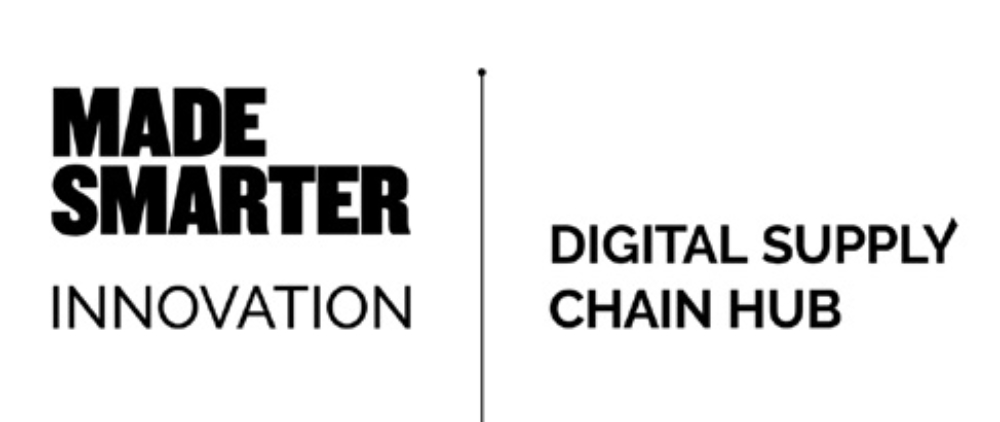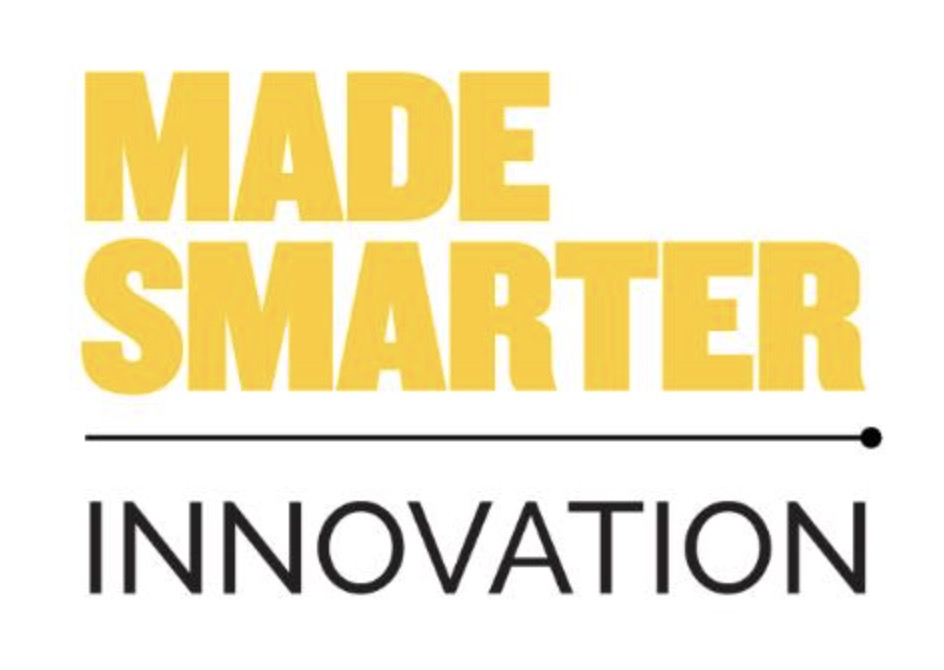The Defence Testbed Accelerator is part of the Made Smarter Innovation | Digital Supply Chain Hub programme. The testbed aims to enable the Ministry of Defence (MoD) and its supply chain of manufacturers to securely manage and share manufacturing design data to support and increase agility in distributed additive manufacture (3D printing) of parts. Funding of up to £100,000 is available for UK technology innovators and startups who can develop proof-of-concept solutions for addressing challenges for a critical national department.
Digital Catapult, as delivery partner, will facilitate and guide the partnerships between the MoD, its supply chain partners (Babcock, NP Aerospace, RBSL and Thales) and the tech innovators. Solutions providers based in the UK and with a Cyber Essentials certification are encouraged to apply by 23:59 on Sunday 28 September 2025.
This programme is also supported by the National Composites Centre (NCC) and the Manufacturing Technology Centre (MTC), carrying out the project on behalf of High Value Manufacturing Catapult (HVMC).
Accelerator Background
The Ministry of Defence (MoD) is facing challenges in equipment availability due to long lead times, part obsolescence, and limited flexibility in traditional manufacturing approaches. To help address this, the MoD are actively exploring additive manufacturing technologies to increase the agility of parts manufacture. For additive manufacturing to be effective, the MoD and their manufacturing supply chain need the ability to securely create, configure, store and share manufacturing data to enable parts to be produced at local, remote and distributed manufacturing hubs.
Currently, the MoD is limited in its ability to see all the design information for parts they might need for repairs across their various machinery. Manufacturing data is fragmented, held privately by the OEMs in isolated systems with ad hoc sharing methods. This limits visibility, standardisation, and access to the associated Technical Data Packs (TDPs) needed for the integration with additive manufacturing processes. Feedback loops are weak, hindering continuous improvement. A consolidated, secure platform is needed to access, share, and deploy this data across its supply chain.
The MoD is looking to explore and identify which technologies can allow the secure extraction, transmission, presentation, and use of TDP metadata to authorised supply chain stakeholders.

The Challenges
The Defence Testbed Accelerator is searching for up to five tech SMEs who can develop proof-of-concept solutions to solve one of two challenges:
- Collecting design information metadata from various Product Lifecycle Management (PLM) systems into a consolidated platform
- Building the consolidated platform to allow people to view, access, and share all the data in one place, on a permissioned basis
To validate solutions built as part of the testbed, participants of the programme will benefit from a specially developed testbed, designed to provide access to simulated real-world manufacturing environment without disruption to day-to-day operations of the MoD and its partners. Participants will explore the ‘art-of-the-possible’ for secure data exchange across the UK’s additive manufacturing landscape, to explore how separated and disperse data can be standardised, consolidated, and made visible via a federated digital inventory.
Specifically, this testbed aims to explore what technologies can be used to secure access to disparate PLM systems and make the TDP information within them discoverable by people who need the information across the supply chain.
Challenge 1: TDP-Digital Inventory Connector
For this challenge, the testbed requires up to three tech SMEs who can build connector-layer software capable of pulling data from manufacturing design systems in the testbed representing different OEM PLM software systems and exposing output metadata regarding these datasets in a standardised format.
This metadata will be used to create a federated digital inventory of all available components across the supply chain. The connector-layer will also allow appropriately authorised users to remotely retrieve the TDP data from the PLM systems.
The developed TDP connector must be capable of interrogating one or more simulated OEM TDP repository (representing real-world PLM systems), enabling the retrieval of PLM data and synthesis and exposure of metadata in a standardised format for the creation of the distributed digital inventory (the direction of operation could be a push or a pull as the participant deems fit given the requirements).
The proposed TDP connector may reside anywhere that is appropriate to standard security principles for a system that is entirely under the control of the owner of the PLM system, exposing only the endpoints for communication of metadata with the digital inventory, and TDP datasets to authorised remote parties.
Challenge 2: Federated Inventory
For this challenge, the testbed requires up to two tech SMEs who can develop a federated inventory solution, communicating standardised metadata surfaced from the various connection layer software solutions into a single viewing plane of headline TDP information (i.e. key TDP attributes) suitable for a digital inventory User access configuration and controls should be considered, as well as the visibility of data within the digital inventory via the connector software.
The TDP digital inventory should:
- Interact with multiple PLM connectors adhering to a standardised API
- Display all collated information within a unified and standardised User-Interface
- Have access controls for visibility of contents for 4 different actor classes (MoD, TDP originating OEM, second OEM, Additive Manufacturer)
- Expose a standardised API for querying contents

Benefits
Funding – £100,000 in grant funding to design and develop challenge-focused PoC solutions within the testbed environment
Industry collaboration – Build and expand relationships across key stakeholders within the UK’s defence sector, working closely with the Ministry of Defence and key industry partners (Thales, RBSL, Babcock, NP Aerospace)
Technical mentorship – Access to Digital Catapult’s technical experts to support solution development and push the boundaries of the art-of-the-possible, including systems architecture, security, and integration advice
Validation & visibility – Test and demonstrate your technology solution in a simulated real-world environment
Other benefits – Networking opportunities, peer-to-peer learning and the opportunity to pitch the solution at the accelerator showcase event in 2026
Key dates
Monday 1 September 2025
Applications open at 14:00
Sunday 28 September 2025
Applications close at 23:59
w/c Monday 20 October 2025
Select applicant interviews take place
Friday 24 October 2025
Intended notification of all successful applicants
Wednesday 12 November 2025
Programme begins
Key information
Who should apply
- Applicants must be a UK based registered company, or prove they have an establishment in the UK and undertake the majority of their activity in the UK.
- Applicants must have a UK business bank account for any payments to be made.
- All work for this programme (including via any sub-contractors) should be undertaken in the UK.
- All applicants must hold the Cyber Essentials certification (or equivalent).
- Applicants must be able to receive £115,000 in State Aid.
Evaluation criteria
RELEVANCE [25%] The proposal presents a well-developed idea that highly relevant to the challenge and its technical requirements.
VALUE & INNOVATION [25%] The proposed use case is novel and innovative, offering valuable insights and clear added value to the programme partners.
TEAM EXPERIANCE [25%] The applicant and their team demonstrate the necessary expertise, experience, and technical capabilities to develop and deliver the proposed PoC within the programme timeframe.
PROJECT FEASIBILITY [25%] The use-case idea and project plan are technically feasible within the available timeframe, supported by a well-thought-out Development Roadmap with clear and appropriate budget and milestones.
How to apply and next steps
- Applicants must apply via the application form linked from this page.
- As part of the application, you will be asked to demonstrate that you meet the conditional requirements for the Defence Testbed Accelerator.
- Once you start your application you will have until 23:59 on Sunday 28 September 2025 to submit your application. Once submitted you will not be able to make any edits.
- Should you require any assistance with the application you can reach out to DSCHcluster@digicatapult.org.uk to explore the suitability of your idea for the challenges.
Before applying, please read...
Terms and conditions
Before you apply for this programme, please read the terms & conditions.
Frequently asked questions
If you have any questions about the programme, some may be answered in our FAQs





